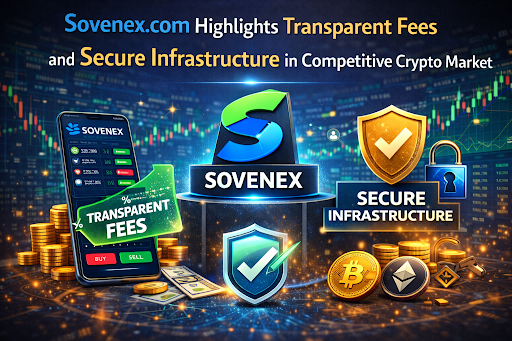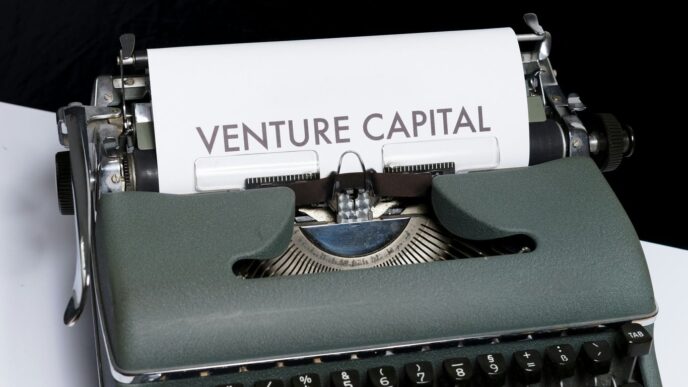The crypto fundraising playbook is being rewritten. As token founders shift away from venture capital and toward scalable, public-facing distribution, institutional crypto crowdfunding launchpads have emerged as the engines behind the industry’s most impactful launches. Platforms like CoinList, Republic, Echo by Cobie, Kaito Capital Launchpad, Bitget LaunchX, and SeedList are quickly becoming the infrastructure of choice for Web3 teams looking to raise capital, build global communities, and create lasting brand visibility.
The move away from VC gatekeeping is not just philosophical, it’s practical. Launchpads offer broad contributor access, transparent allocation mechanics, and the ability to activate tens of thousands of users before a token hits the market. With more than 100 token offerings anticipated through the end of 2025, launchpads are overtaking private capital rounds as the default strategy for high-growth crypto projects.
WalletConnect’s Triple Launch Was a Milestone
The success of WalletConnect’s WCT token launch earlier this year marked a significant shift in how top-tier projects are going to market. Instead of relying on one platform or private raise, WCT was offered across Bitget LaunchX, CoinList, and Echo:
- Bitget LaunchX filled a $4 million allocation in less than two hours, fielding $170 million in pledges from over 40,000 participants.
- CoinList hosted over 18,000 contributors from 100+ countries in a fully public sale.
- Echo, launched by Cobie, hit its $500,000 private sale cap in just 11 seconds thanks to strong automation and a built-in user base.
CoinList, which began as a spin-off from AngelList, continues to thrive with launches such as Bitlayer, DoubleZero, and Obol. Its karma-based model rewards engagement and has previously introduced major projects like Solana, Flow (by Dapper Labs), and Filecoin.
Republic, backed by Galaxy Digital, has now raised more than $120 million through its launchpad and pays stablecoin dividends to Note token holders. Echo is developing into a self-serve launch infrastructure through its modular Sonar framework, enabling early-stage projects to conduct their own compliant token sales.
Kaito Capital Launchpad, which debuted in July under the leadership of former Citadel executive Yu Hu, brings a new layer of sophistication to token distribution. It uses AI to rank social reputation, includes native Base-chain support, and launched its first project, Espresso, with features like multi-stage vesting, capped allocations, and redistribution of fees via the KAITO token.
SeedList Is Building an Allocation System That Rewards Contribution, Not Capital
SeedList is pushing the fundraising model even further by rewarding those who help projects grow, not just those who can afford large investments. Headquartered in Singapore, the platform uses AI to evaluate real-world contributions like code, content, and community engagement when determining token access.
“We’re not just another launchpad, we’re a new kind of capital formation layer,” said Rosa Pagani, co-founder of SeedList, during a recent founder briefing. “We’ve removed venture capital from our allocation structure entirely and reallocated that access to KOLs and microinfluencers who actually help build traction for early-stage crypto ecosystems.”
SeedList is uniquely structured to avoid the complications associated with fiat onboarding and custodial wallets. This makes it more accessible to contributors across emerging markets and more adaptable for founders seeking global community building without complex regulatory constraints.
The team behind SeedList includes some of the most respected names in crypto and tech. Rosa Pagani also leads WhiteBIT Australia, part of WhiteBIT Global, Europe’s largest cryptocurrency exchange, with 8 million users. Her co-founder, Brijesh Patel, was a partner at Pronomos Capital, a decentralized governance VC fund backed by Marc Andreessen (a16z), Balaji Srinivasan (former Coinbase CTO), the Winklevoss twins (founders of Gemini and early Facebook backers), and Naval Ravikant (founder of AngelList, parent of CoinList).
CryptoSheldon, a key developer in the Solana ecosystem, emphasized the platform’s mission: “Projects today don’t just need capital; they need community, influence, and momentum. If you want exposure to a regulated U.S. market and are VC-friendly, CoinList is great. If you want to onboard 500,000 users globally through KOLs, SeedList is unmatched. Echo and Kaito offer models in between.”
Launchpads Are Becoming the Default Infrastructure for Token Distribution in 2025
Platforms like CoinList, Kaito, SeedList, Republic, and Echo are doing more than fundraising, they are integrating compliance, contributor analytics, KYC, community incentives, and liquidity into a full-stack capital formation model. The result is a unified infrastructure where projects can launch tokens, build user bases, and generate demand, all in one place.
The shift has been dramatic. What once required months of legal structuring, VC rounds, and exchange negotiations can now be handled in a single, integrated launchpad process, often with greater transparency and broader distribution.
Top names in crypto are building their own ecosystems to reflect this new reality. Jordan Fish (Cobie) launched Echo. Yu Hu created Kaito. And renowned Solana developer CryptoSheldon, co-founded SeedList.
Heading into Q3 and Q4 of 2025, token launches are lined up across all major platforms. From decentralized AI protocols and L2 infrastructure to global DePIN deployments, these launches will reflect the rising dominance of crowdfunding models. With better tooling, smarter allocation strategies, and global reach, 2025 is shaping up as the year that institutional crypto crowdfunding launchpads took over from venture capital once and for all.














